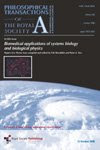Hindsight-Foresight-Insight
Since these key concepts "Hindsight-Foresight" are fundamental to the preoccupations of this blog it is fitting that a little more insight be given to the underlying meanings which these concepts may conjure-up.
-Hindsight obviously conjure up the notion of experience, age…
-Foresight conjures up the attractive idea of mapping the future, reducing uncertainty and anxiety maximizing profit minimising loss etc...
Here the solution is in the concept of Insight.
Two references are quoted:
1. Soft and rather poetic.
2. Harsh_the harshness and anguish of seeking insight in response to the 9-11 terrorist attack.
First an interesting and rather poetic approach to the opposing hindsight-foresight dilemma which we shall see can be transcended as all dilemmas must be if solutions are to be found.
One can ask "what is more important"?
The looking backwards that comes with hindsight, or the looking forward that comes with foresight?
V.P. Mosser of learnthelessons.com explains as follows:
"I found that I'm able to learn lessons from past experiences by using hindsight, however, I'm also able to foresee future potential road blocks and pitfalls by using foresight."
Mosser’s Straight Board Analogy.
The ridged thick board cannot be bent the board. "The board is like the dilemma in the question "what is more important, hindsight or foresight"? It's one board with two different ends." (ie. holistic approach ) And goes on to explain "that one needs a balancing point, a point where you can see both ends, or both points, simultaneously." What Mosser recommends, is insight; and which he goes on to define as "vision in the moment, that's the transfer point between hindsight and foresight. Insight is neither hindsight nor foresight, yet it is of both."
"The focal point, or in other words, the point of balance in the middle of the teeter-totter that makes the ride possible is like insight. That focal point makes it possible for hindsight and foresight to transfer their energy and wisdom between one another. This point is also the birthplace of the two endpoints because it is the only spot that isn't a part of the past or a part of the future. What you do at this point of insight becomes your past, and what you do here at this point of insight determines your future. So, my friend, you might say that the balance point is insight-and the board represents hindsight at one end and foresight at the other. Just as the balance point transforms a simple board into a fun ride as a teeter-totter; so does insight effect our lives when we use the balance point of insight."
"To paraphrase:
You see, insight operates in the moment, it's instantaneous-it's not of time-it's simply a marker between the past and the future; another way to explain it would be as a porthole between the past and future. Insight is a transformational ( transcendental?) point in which life happens when one is completely attentive to each moment, to the present, which is where we live our lives, moment by moment.
The problem we so often experience is that we give our attention to the past or the future, at the expense of attending the all-important present moment. We worry about our past or fret about our future and in that process we give up our opportunity to exercise any influence we have in our lives, which can only happen in the here and now.
More from learnthelessons.com
2. Harsh_ The harshness and anguish of seeking insight in response to the 9-11 terrorist attack.
In composing this narrative we have tried to remember that we write with the benefit and the handicap of hindsight. Hindsight can sometimes see the past clearly - with 20/20 vision. But the path of what happened is so brightly lit that it places everything else more deeply into shadow.
Commenting on Pearl Harbor, Roberta Wohlstetter found it "much easier after the event to sort the relevant from the irrelevant signals. After the event, of course, a signal is always crystal clear; we can now see what disaster it was signaling since the disaster has occurred. But before the event it is obscure and pregnant with conflicting meanings."
Insight for the future is thus not easy to apply in practice. It is hardest to mount a major effort while a problem still seems minor. Once the danger has fully materialized, evident to all, mobilizing action is easier—but it then may be too late.
The methods for detecting and then warning of surprise attack that the U.S.
government had so painstakingly developed in the decades after Pearl Harbordid not fail; instead,they were not really tried.They were not employed to analyze the enemy that, as the twentieth century closed, was most likely to launch a surprise attack directly against the United States.
In guise of a conclusion from the 9-11 Commission Report:
From Insight to Action requires Exceptional Insight and Action comes at times of Exceptional Circumstances: The following is quoted the 9-11 C report.
"
The Millennium Exception
Before concluding our narrative, we offer a reminder, and an explanation, of
the one period in which the government as a whole seemed to be acting in
concert to deal with terrorism—the last weeks of December 1999 preceding
the millennium."
"In the period between December 1999 and early January 2000, informa-
tion about terrorism flowed widely and abundantly.The flow from the FBI was
particularly remarkable because the FBI at other times shared almost no infor-
mation."
More...cf. reference 2 below whose conclusions I strongly recommend.
Indeed balance is ever necessary be it individual or big gouvernment-organisations!
There is much to be said for the poetic approach to personal focus, balance and 'thinking outside the box' for creative thought and depth of insight.
References.
1. More from learnthelessons.com
2. THE 9/11 COMMISSION REPORT [pdf]








